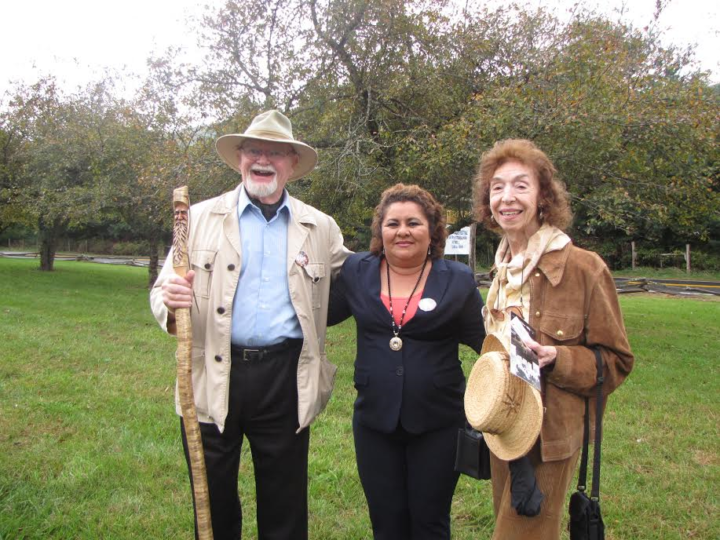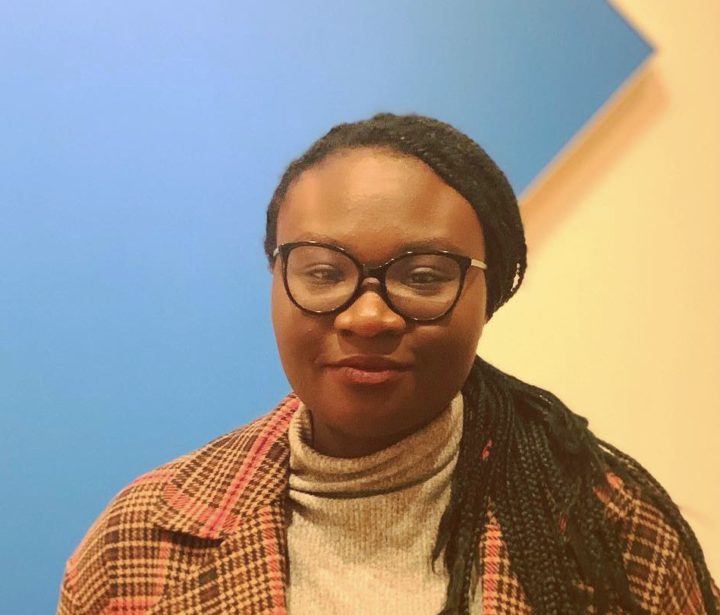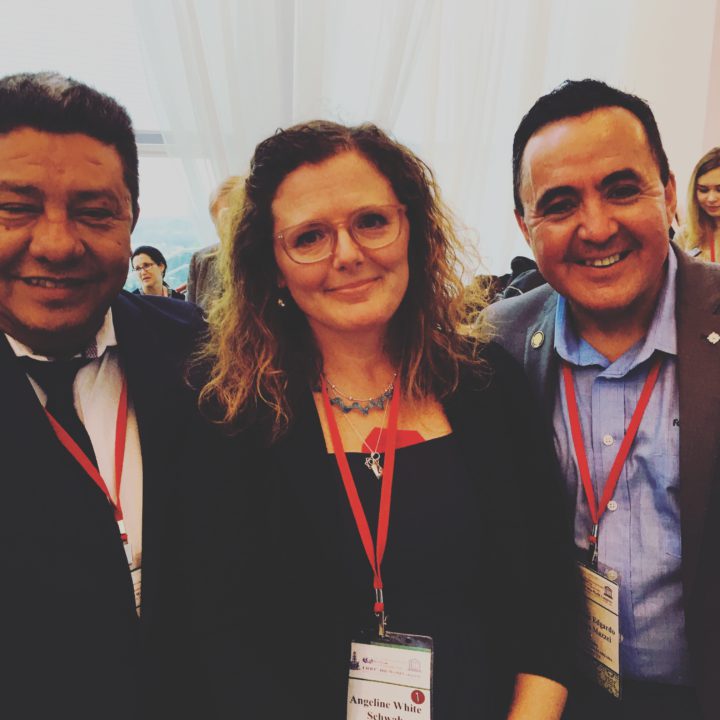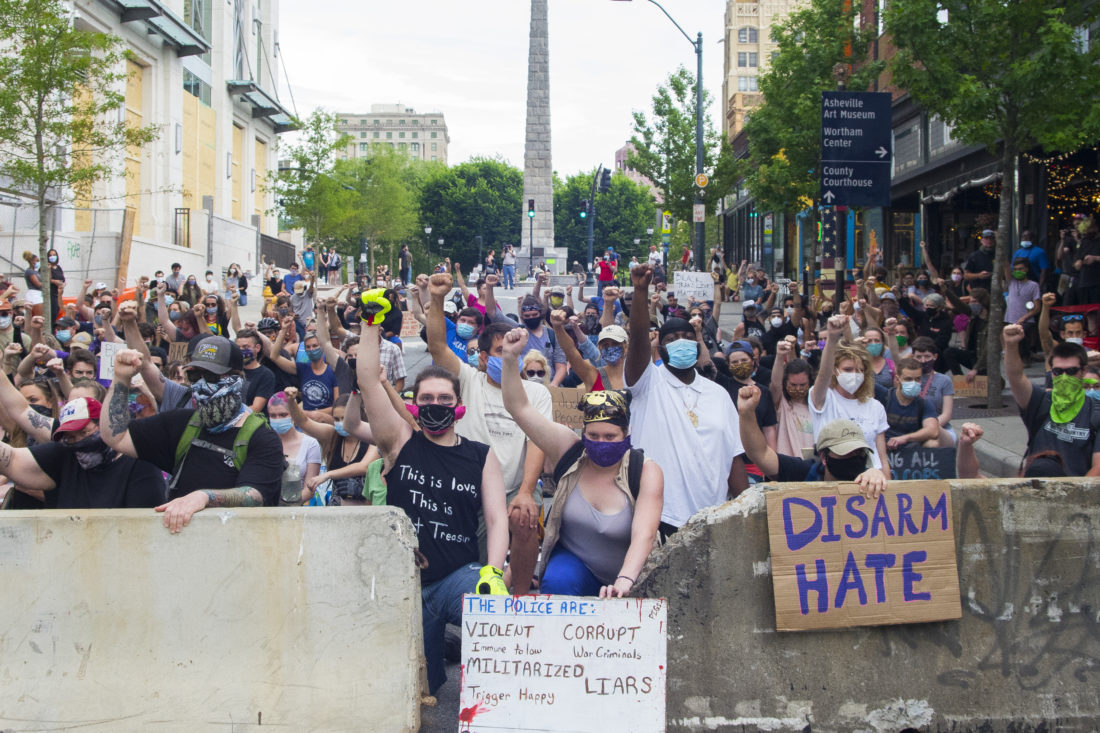The nationwide protests over the May 25 death of George Floyd have gone global. From England to Australia, South Africa to Tokyo, marchers have taken to the streets demanding police reform and genuine racial equality after four Minneapolis police officers were charged in connection with the African American man’s death.
Amid this worldwide outcry, Xpress reached out to several local organizations to discuss what insights their international work — much of which has been put on hold due to COVID-19 — might offer Western North Carolina residents who are grappling with the ongoing legacy of white supremacy in America.
Know thyself
Ken Richards has been involved in international work since the late 1950s, living and teaching abroad for much of his adult life. He retired to Asheville in 1980.

Eight years later, he helped launch Asheville Sister Cities, a nonprofit that aims to promote international awareness and cultivate relationships with the organization’s seven “sisters”: Vladikavkaz, Russia; San Cristobal de las Casas, Mexico; Saumur, France; Karpenisi, Greece; Valladolid, Mexico; Osogbo, Nigeria; and Dunkeld-Birnam, Scotland.
Among the many benefits of global work, says Richards, are its introspective insights. “You start getting to know yourself better,” he explains. “You compare yourself to people in host countries, and when you host them here, you’re doing a lot of research to learn how to be a good host.”
Rumination and study, paired with exposure to different cultures and beliefs, help broaden an individual’s perspective, says Richards, adding that over the last 60 years, his own views about America have shifted because of his work.
“We have the wrong image,” he says. “We want everyone to know how much better things are in our nation. Well, everyone feels where they live is pretty good too, and they take pride in it. We’re no better than anybody else; we’re no worse than anybody else — we’re all just as good as.”
Stepping down from the imaginary pedestal of American exceptionalism is essential for the advancement of all global citizens, Richards maintains. “We have to realize that we must respect people, and I dare say must love people. But first, we have to respect and know ourselves.”
No pity, please
But getting to know yourself can be a challenge, says Yetunde Bashorun. In 2016, while an undergraduate at Western Carolina University, she interned at Folkmoot, a Waynesville-based nonprofit that organizes cultural exchange programs.

During her time with the organization, Bashorun helped launch Cultural Conversations, a discussion-based series designed to bring diverse community members together to address their biases. The weeklong initial run featured five different groups. And while the majority of participants were white, she notes, the mix included everyone from business owners to public leaders, law enforcement personnel to community activists.
Despite these individuals’ willingness to participate, however, there were obstacles. “There’s a lot of fear and defense that comes with confronting one’s biases,” says Bashorun, who has since earned a master’s degree in international studies from N.C. State. “It puts you in a vulnerable space where you have to admit there is something a bit eschewed with the way you view things.”
To ease tensions, Bashorun began each session by acknowledging her own prejudices. “It’s about letting people know that even those who do activism work and people who preach are imperfect in their own ways,” she explains.
At the same time, however, she worked to discourage mere surface-level participation by members who were willing to acknowledge white privilege or express a sense of guilt but then refused to further examine those positions.
“We don’t want you to do it out of pity,” Bashorun explains. “We want you to do it with intention and because you really want to educate yourself.”
Cultural Conversations will return to Folkmoot this fall via online sessions, with in-person meetings as well if health and safety guidelines permit them.
The whole world is watching
But what happens if, come fall, the current push for equality and justice has dissipated? What if, particularly among white Americans, the present outrage and demands for change prove to have been temporary? It’s a real possibility, but for many involved in international work, the killing of Floyd and the ensuing protests feel different this time, in large part because of the global response.
Jennifer Pickering, executive director of LEAF Global Arts, has been in conversation with a number of the Asheville-based nonprofit’s international partners, including members in Haiti and St. Vincent. According to Pickering, the death of Floyd has resonated in both nations, inspiring residents there to reflect and demand action on racial injustices in their own backyards.
Meanwhile, LEAF instructor Adama Dembele says his family has been watching the protests closely from their homes in Ivory Coast. “They only see the bad stuff,” says the master djembe player, referring to the looting and riots that have occurred alongside peaceful protests. “So they get a little bit scared.”
Bashorun, who emigrated from Lagos, Nigeria, to the United States in 2001, has also been in contact with her extended family in West Africa. Their perception of America, she says, has changed because of the country’s response to COVID-19 as well as the killing of Floyd.
“I think they’re starting to wake up to the idea that … the promised land isn’t really all it’s cracked up to be,” she says. “They know what’s going on and see that a lot of what is happening here resembles a lot of what sometimes is going on down there in Nigeria.”
Elise Guillemet, an English teacher from Saumur, described a similar experience after visiting Asheville in February as part of a Sister Cities exchange program. The trip, she said in an email to Xpress, feels like a lifetime ago in light of all that’s transpired since then.
“As far as the current protests are concerned, I think it is symptomatic of how angry and desperate American people feel right now,” Guillemet wrote. “What was striking for me was to see how far-reaching George Floyd’s death has been. In a way this has allowed many deep-seated issues to come out — even in France, where people have been demonstrating.”
Asheville Sister Cities member Stephanie Hellert, who teaches French at The Franklin School of Innovation, says this global chorus of voices sends a very clear message: “The whole world is watching us to see if we can act upon the moment and make significant and lasting reparations and change.”

Into the looking glass
Angeline Schwab, Folkmoot’s director, echoes those sentiments. Over the last few weeks, she’s been involved in a number of ongoing conversations with colleagues around the world, including a text exchange with Ghanaian artist and dancer Samuel Baidoo.
“He said he’s heard about the U.S. and that he’s worried about our safety,” Schwab reveals. “And he says, ‘I only want Americans to be great always,’” she adds with a weary laugh.
Their exchange, continues Schwab, resembled many other conversations she’s had since Floyd’s death. Most of those who contact her say they hope that America will make the necessary changes to live up to its ideals. “They admire us in so many ways,” she points out.
Yet others, notes Schwab, send messages of pity, as if the American experiment had entered its final descent.
But whatever the nature of the exchange, she maintains, “It makes you self-reflect about how [other countries] think and feel about our culture.” That’s the beauty of international work, says Schwab: “We get a constant opportunity to have someone hold the mirror back up to us.”



Before you comment
The comments section is here to provide a platform for civil dialogue on the issues we face together as a local community. Xpress is committed to offering this platform for all voices, but when the tone of the discussion gets nasty or strays off topic, we believe many people choose not to participate. Xpress editors are determined to moderate comments to ensure a constructive interchange is maintained. All comments judged not to be in keeping with the spirit of civil discourse will be removed and repeat violators will be banned. See here for our terms of service. Thank you for being part of this effort to promote respectful discussion.